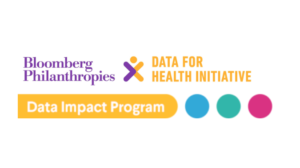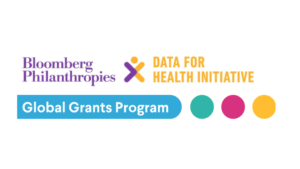Many governments have a trove of health data available to them—from census to hospital records. Often these data remain unused, despite its potential to guide critical policy or investment decisions. Vital Strategies’ Data Impact program works in 22 countries on more than 90 projects, as part of the Bloomberg Philanthropies Data for Health Initiative. Focused on data use, the initiative collaborates with governments to expand the use of data to enhance public health policymaking. This includes prioritizing health issues and identifying populations in need; allocating financial and human resources; enacting laws and regulations; and establishing programs and services.

Why It Matters
Government priorities and policies do not always align with burden of disease and population needs in country. For example, 80% of deaths are caused by noncommunicable diseases (NCDs), while only 30% of government health funding in low- and middle-income countries is spent on them. It has been found that every $1 invested in data systems provides $32 in return.
Our Results
- 66 policy briefs have led to changes in policy or practice through passing or implementing a policy recommendation
- 9,368 ministry of health staff and others have received training on using data for public health practice.
Areas of Technical Assistance
Customized to the needs of the governments with which we partner, our technical assistance focuses on three fundamental areas:
People
Enhancing technical staff expertise in using data to identify public health issues and design solutions. As of September 2023, the program has trained more than 9,500 people from 91 low- and middle-income countries.
Processes
Strengthening practices, structures and policies to institutionalize widespread, high-quality data use. By building robust systems to monitor public health data, governments can use insights from those data to drive action to improve people’s health.
Products
Creating clear and compelling reporting of health data to enhance understanding of critical public health issues. Policy briefs, data reports and digital data solutions—these are the means by which governments share public health data, alert stakeholders to health threats and communicate public health priorities.
For more information visit https://www.d4hdataimpact.org.
About the Data for Health Initiative
The Data for Health Initiative is a global effort supported by Bloomberg Philanthropies. The Initiative provides technical and financial assistance to low- and middle-income countries worldwide to improve public health data.
Vital Strategies serves as an implementing partner in the Initiative, with several programs related specifically to data improvement and public health intelligence: The Civil Registration and Vital Statistics (CRVS) Program assists governments in strengthening their systems for counting every birth and death and for monitoring the causes of death; the Data Impact Program supports governments to maximize the use of data to enhance public health policymaking and decision-making; the Cancer Registries Program provides assistance to governments in establishing and strengthening population-based cancer registries; and the Global Grants Program provides funds to government and local experts to implement discrete projects focused on data for public health decision-making.
The various Data for Health programs support country partners to strengthen data systems including a focus on gender equity, and all have worked in collaboration to produce guidance and technical assistance on COVID-19 for government partners, enabling them to better measure the scale of the crisis within their borders and execute a data-driven response.
Latest News from Data Impact Program View all
- Expert Q&A 10.11.2023
- Vital Stories 10.11.2023




